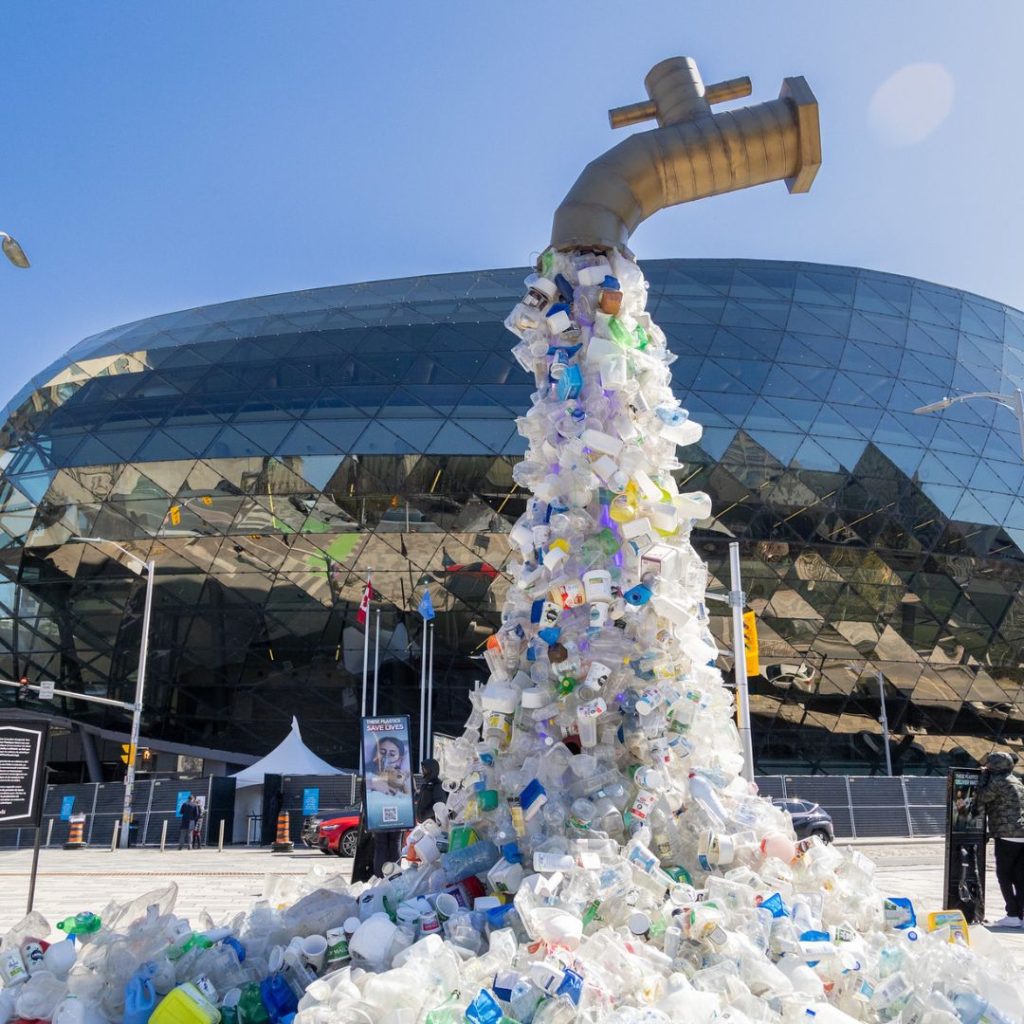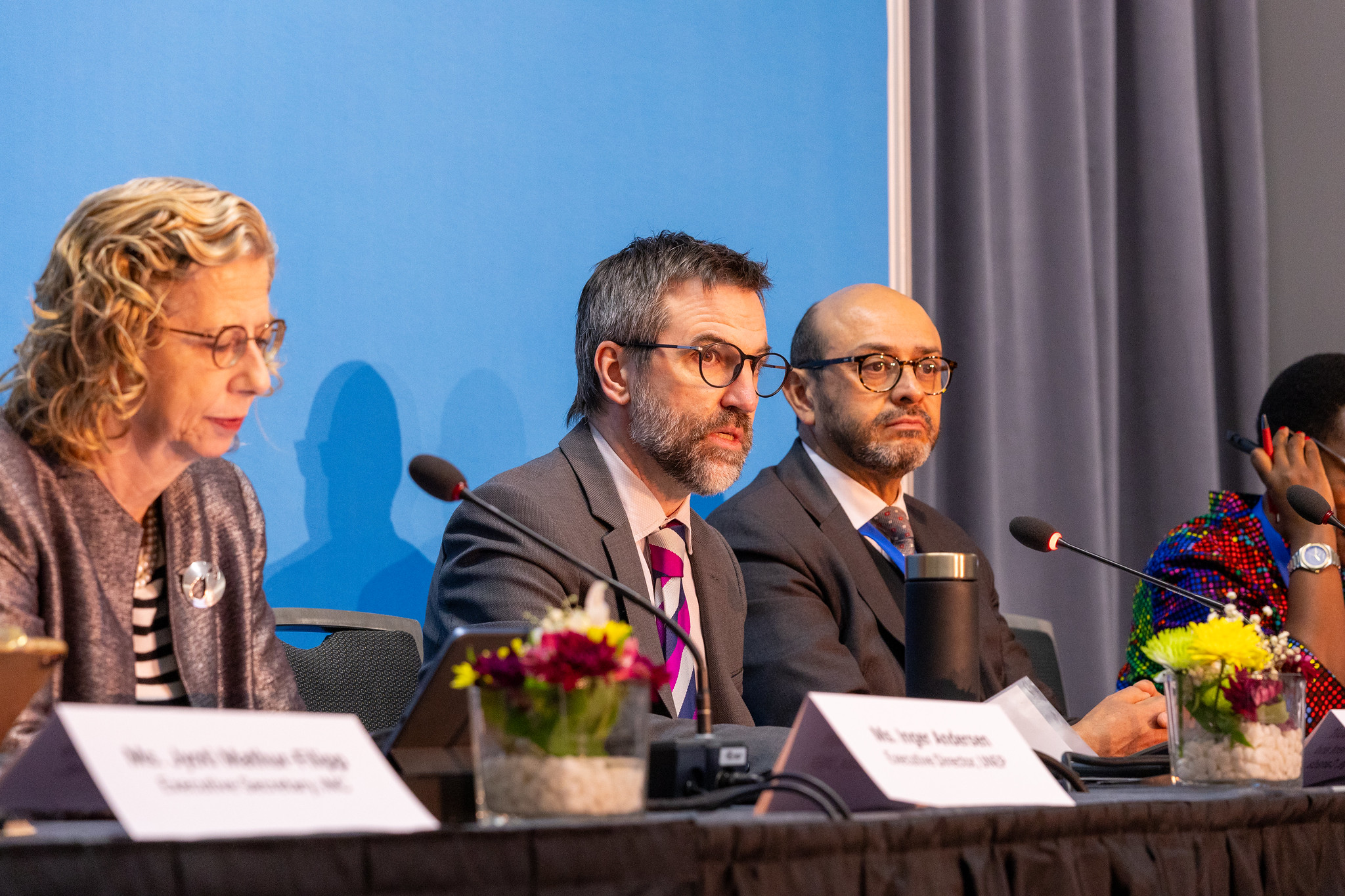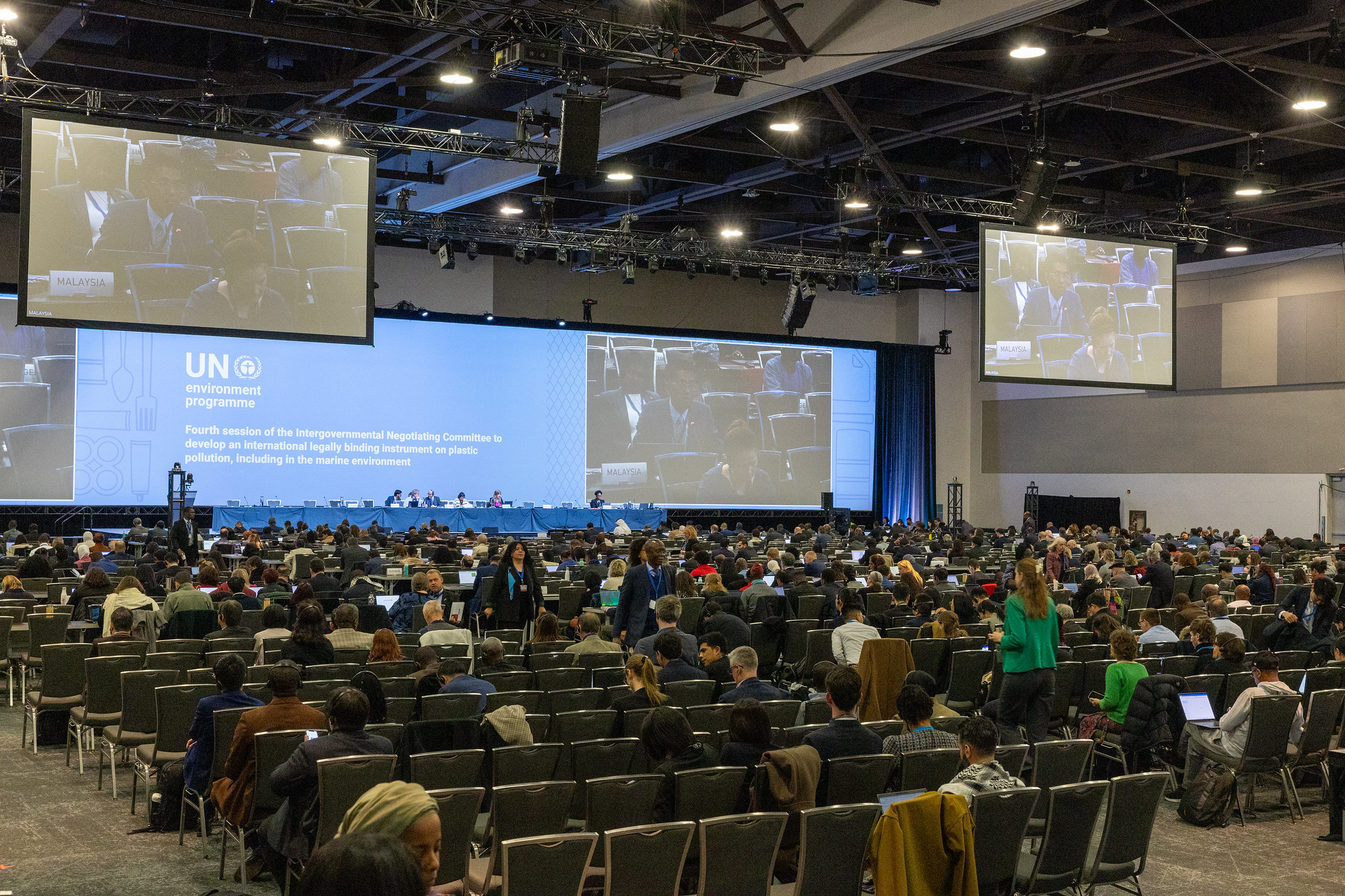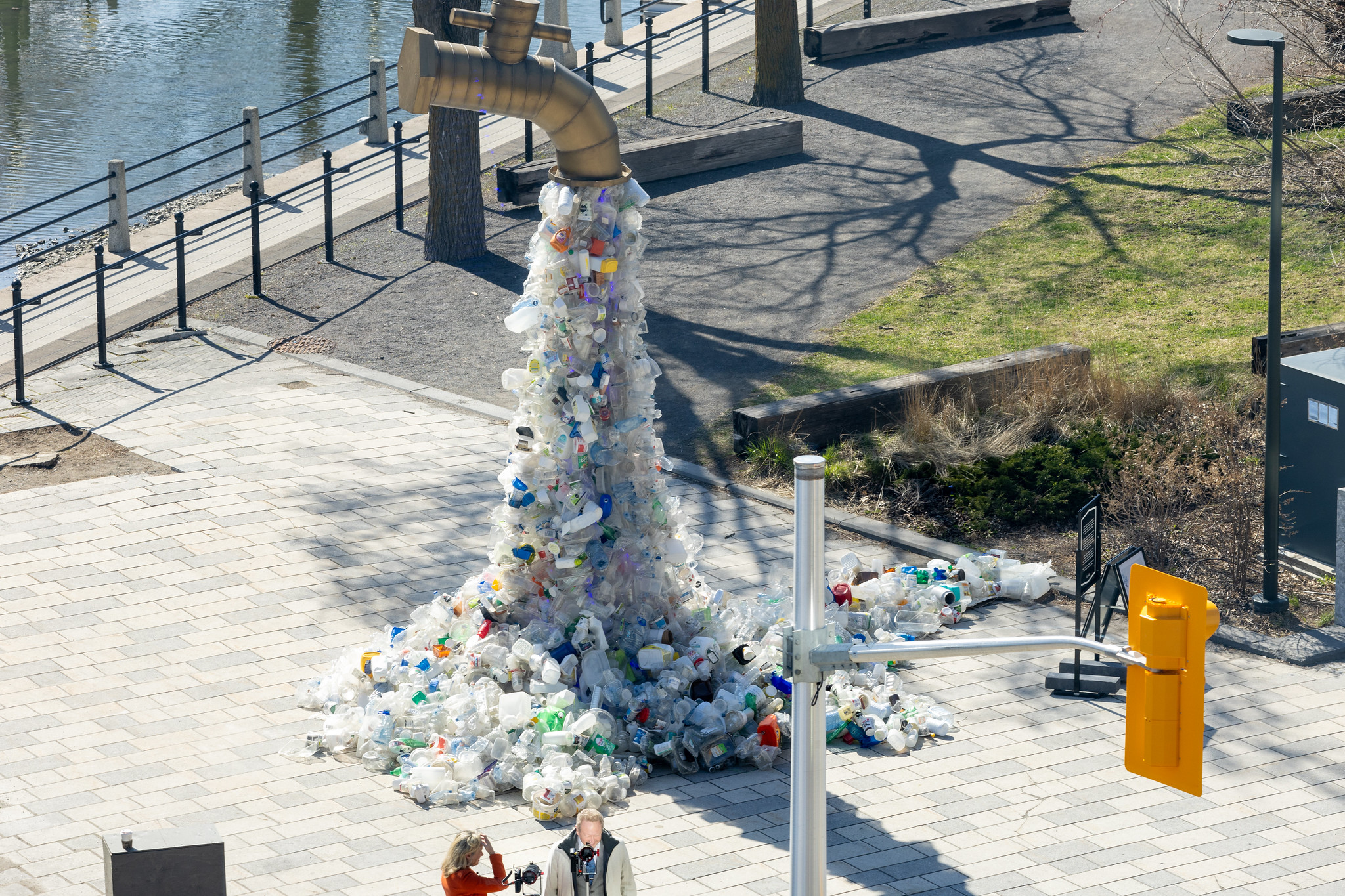Penultimate and decisive round of negotiations on global plastics agreement

Global plastic pollution on land and in the world's oceans is one of the most important and urgent global environmental issues. The UN wants to negotiate a legally binding agreement against global plastic pollution by the end of this year. This is an ambitious goal, as the interests of the 180 participating countries are sometimes very far apart, making the task a mammoth project. The fourth and penultimate round of negotiations (INC-4) opened yesterday in Ottawa (Canada).
"Agreeing on a global agreement on plastic pollution by the end of 2024 would be one of the most significant decisions in the environmental field and a unique agreement that would commit the world to a common goal to end plastic pollution," said Steven Guilbeault, Canada's Minister of Environment and Climate Change at the launch in Ottawa.

Status of the negotiations
The starting position for this round of negotiations is extremely difficult because the previous round in Nairobi last fall did not produce any significant results. Ambitious countries such as Germany, Sweden and countries heavily affected by plastic imports such as Senegal and Rwanda were forced to realize after the third round of negotiations that oil-producing countries such as Saudi Arabia and Russia as well as China and the USA in particular have little or no interest in reducing production volumes. The negotiations currently taking place will therefore determine the success of the plastics agreement.

Two alliances in the negotiations
It can be assumed that the two existing alliances will continue to exist in the fourth round of negotiations. On the one hand, there is the High Ambition Coalition (HAC), with 50 countries such as the EU, Rwanda, Norway and Ecuador, but also surprisingly the United Arab Emirates, Azerbaijan and Japan, whose declared goal is to reduce plastic pollution to zero by 2040 and massively reduce the production of new plastic.
In contrast, there is the Like Minded Group, with oil-producing countries such as Saudi Arabia, Iran and Russia, as well as China. Unsurprisingly, this loose alliance wants to make little change to production volumes.
In between are countries such as the USA, which is in the middle of the election campaign, and Brazil, whose position in Ottawa will be decisive, says Lisa Panhuber, who is there as an observer from Greenpeace in Canada.
"We see a convergence in the elimination of problematic and avoidable uses. We will continue to need plastic for certain uses, such as renewable energy technologies. But there is a growing consensus that short-lived and single-use products can disappear," said Inger Andersen, Executive Director of the UN Environment Program at the launch in Ottawa.
On the urgency of the agreement
According to OECD estimates, we produce more than 300 million tons of plastic per year. This can be found in the most remote regions of our planet as well as in animal stomachs and as microplastics already in human blood. By 2060, the annual amount could even rise to one billion if we don't take global action. As production increases, the associated CO2 emissions would also rise dramatically.
This is why a legally binding treaty, as the UN Environment Program (UNEP) has already drafted in a rough version, is so important. This would significantly curb plastic pollution on the planet and integrate it into a circular system. It also includes the elimination of problematic and unnecessary plastics, the abolition of single-use plastics and the disposal and recycling of plastics.
"The rapid increase in plastic pollution is a serious global environmental problem that has a negative impact on the environmental, social, economic and health aspects of sustainable development," states the UNEP. As we have already reported, according to UNEP, plastic pollution could be reduced by 80 percent by 2040.

NGOs call for a massive reduction in the flood of plastic
Greenpeace is calling on Gewessler, the climate minister responsible for Austria, to campaign for a strong agreement: Plastic production must be reduced by 75 percent by 2040.
Greenpeace spokesperson Jasmin Duregger: "Plastic is littering our oceans and polluting our fields. People in Austria and around the world have recognized the seriousness of the situation and are saying 'no' to the flood of plastic. Politicians must now adopt a strong UN plastics agreement that secures our future. There are alternatives to single-use plastic, we must use them and finally put a stop to corporate pollution."
WWF has also been campaigning intensively for a plastics agreement for a long time. "This round is crucial for the success of the treaty negotiations," emphasizes Florian Titze, Senior Policy Advisor at WWF Germany. "In the last talks, a small minority of oil-producing countries succeeded in blocking any progress in the negotiations. The vast majority of countries from all regions of the world support ambitious and legally binding global rules to stem the plastic tide. This majority must prevail so that the agreement is not only in place by the end of the year, but also effective."
We can only hope that the alliance of the ambitious will prevail over the "brakemen" and that the plastics agreement will actually come at the end of the year and also be implemented in the states.
Left:
Photos ©️ UNEP/Artan Jama






